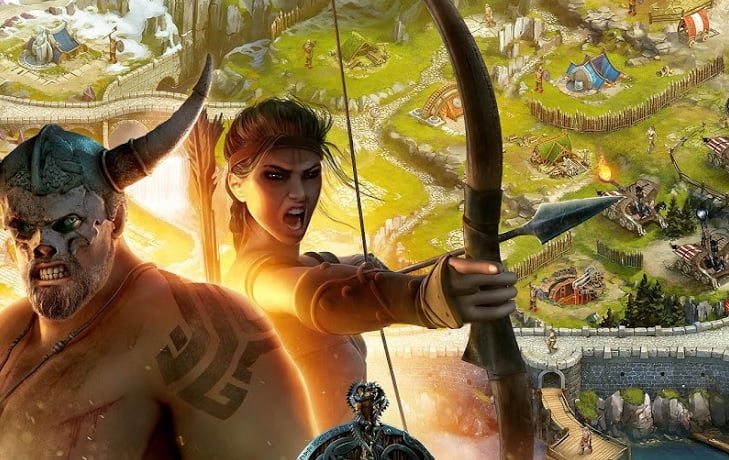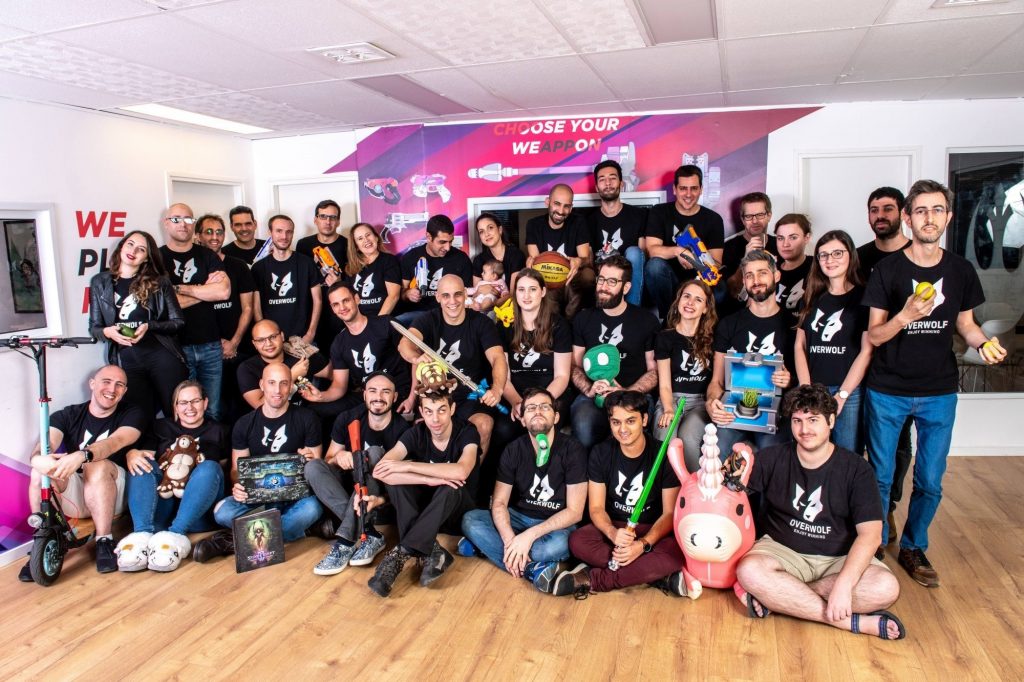As we venture further into the digital age, increased demand for games has fueled a promising gaming industry. According to a 2019 report on trends in the industry by Global Web Index’s (GWI), 92 percent of internet users between 16 and 24 say they have gamed on at least one device in the past month. The industry, reports gaming analytics firm Newzoo, is now valued at $137.9 billion – 13.3 percent higher than last year.
Since the days of Pong and Pacman, the gaming industry has been defined by trends that have emerged from developments such as online gaming, massively multiplayer online (MMO) games, and the freemium model for mobile and PC games. Today, Virtual Reality and iGaming have begun entering mainstream gaming on a large scale and have proven their potential to affect future, industry-transforming trends.
Like other high-income countries, Israel has joined the race to capitalize on the emerging industry.
The inaugural Israeli Esports Forum, Israel’s premier professional conference for the competitive gaming industry, took place today (Wednesday) in Tel Aviv, marking Israel’s growing influence in the global gaming market.
While Israel’s impact on the industry sits well below leading markets like the US ($30.4 bn) and China ($37.9 bn), GWI writes, “It’s in [the Middle East and Africa] where internet penetration rates are at their lowest globally and where the online population is most rapidly expanding, suggesting great room for growth.”
From engaging and educational mobile games for children to cutting-edge cloud gaming SaaS, here are seven Israeli companies tackling every corner of the industry with innovative and technologically advanced gaming solutions.
Playtika
Playtika is an Israeli social and mobile video game publisher with 11 key titles found on the Apple App Store, Google Play, Windows App Store, Amazon Apps, and Facebook. With six million active monthly users, 27 million active monthly users, and over 280 million installations, Playtika is today’s largest grossing game developer on Facebook.
Since its inception in 2010, Playtika has grown from six employees to 1,500 by adding new members to its diverse family of games and associated developers. A year into its operations, Playtika was acquired in 2011 by online mobile and social game developer, Caesars Interactive Entertainment, a company whose specialization in casino entertainment helped Playtika become the current top social casino games developer on iPhone and Android. In 2016, Playtika was sold once more to a Chinese consortium of companies led by Giant Interactive for a whopping $4.4 billion – one of the largest “exits” by an Israeli company.
Playtika has welcomed innovative independent developers such as Jelly Button (2017) and German casual games company Wooga (2018), as integral additions to its collection of platforms, as well as other leading social game brands like World Series of Poker (2013), House of Fun (2014), and Solitaire Harvest (2019).
Playtika continues to spread its operations across the world as the company moves further into the casual gaming space. With 10 current office locations, Playtika recently opened a $6 million research and development center in Bucharest, Romania – its eighth R&D facility.
Plarium
Founded in 2009 by Avi and Gabi Shalel and Ilya and Haim Turpiashvili, Plarium is a Herzliya-based game developer for both PC and mobile platforms. With over 10 key titles and a game pipeline across multiple genres, the company’s popular mobile and social games are played daily by over 250 million players in 150 different countries.
In 2017, Australian gaming giant Aristocrat acquired Plarium for $500 million but it operates as a wholly owned subsidiary. The company employs some 1,200 people across its Israeli headquarters and seven offices and development studios in Europe and the United States.
Plarium’s most popular game to date, “Vikings: War of Clans,” has 4.5 million active users and remains in the Apple App Store’s top 50 grossing mobile applications in the US, the UK, the Netherlands, Germany, Canada, Mexico, India, Sweden, and Denmark.
TabTale
Israeli mobile game developer TabTale has released over 500 original and licensed games including the immensely popular Run Sausage Run – which logged more than 21 million downloads in its first two months – and over 50 million downloads to date. The game appeared as the number one casual game in 20 different countries upon release.
TabTale has repeatedly been ranked by AppAnnie analytics firm as a Top 10 Mobile Games Publisher and since its first hit mobile app in 2010, interactive storybook Christmas Tale HD, the company has reached over two billion downloads.
Today, many of TabTale’s most popular games are those designed to educate kids and stimulate creativity such as Babysitter First Day Mania, where they can feed, bathe, and take care of babies; Hercules Falls…in Love where kids can help the Roman demigod adjust to life and romance on earth; and Paint Sparkles, the number one Kids Coloring App worldwide, in which kids can color with a variety of drawing tools on over 270 coloring templates.
TabTale has offices in seven countries including Israel, China, Serbia, and Bulgaria.
Overwolf
With over 10 million monthly active users across mobile and desktop, Israeli startup Overwolf’s growing open platform for game apps and in-game services offers game developers the opportunity to tailor-create specific tools to fill any gaps they may come across in their favorite games and improve the overall gaming experience. Developers use Overwolf’s platform to create real-time coaching services, analytics solutions, video recording tools, and other supportive capabilities overlaid on popular PC and mobile games.
Sign up for our free weekly newsletter
SubscribeIn 2018, Overwolf raised $16 million in a Series B funding round led by Intel Capital. It was Overwolf’s third investment round after a seed round in mid-2011 and a series-A round at the end of 2013.
The financing round followed the announcement of a joint fund of over $7 million by Intel and Overwolf, for the purpose of investing in apps and mods for hardcore gamers, reports VentureBeat.
“We’ve designed the fund’s evaluation process to be simple and fast,” said Overwolf CEO Uri Marchand, hoping that the structure of the fund will encourage developers to “focus 100 percent of their efforts on making the best possible application, mod or game extension.”
Simplay
Innovative cloud-gaming startup Simplay offers developers the tools to build cloud-streamed, interoperable versions of their game.
The startup was founded in 2016 by Gil Tov-Ly, who serves as CEO, and Roman Noze, the company’s CTO.
“As passionate gamers ourselves, Roman and I were focused on delivering ultimate available content to any gamer worldwide without the need for them to constantly have to upgrade their hardware,” Tov-Ly tells NoCamels.
Latency and weak networks are often the biggest obstacles for developers hoping to upscale, though Simplay’s Shift advanced cloud gaming technology is capable of delivering local-quality gameplay on the cloud. “Our protocol for cloud gaming can mitigate most network issues, resulting in a very stable cloud gaming experience,” says Tov-Ly.
First, Simplay creates a cloud image of the game, then generates a URL for a browser-based display and allows the gamer to publish and distribute just as they would normally.
In addition to appealing to companies like Google, Microsoft, and EA, Tov-Ly says Simplay’s flexible, widely-applicable service uniquely empowers up-and-coming developers whose barriers to enter the developing industry are necessarily more significant than larger studios: “Our technology is really unique, it is really innovative, providing a truly great and low latency gaming experience. So potentially it will strengthen the proposition of emerging developing studios, while it will also significantly expand their audience reach.”
Quarterback
In May 2018, sports fan engagement platform Quarterback raised $2.5 million in its seed investing round for what the company claims would redefine the way superstar eSport streamers engage with their fans.
Viewed as a potential Twitch competitor, Quarterback aims to differentiate itself from the eSports streaming giant by giving streamers total content control. Streamers can launch their own fan club gaming leagues complete with giveaway prizes, daily challenges, and the ability to compete with other streamers’ leagues. The platform monitors streamers and automatically creates challenges relevant to their activity and fanbase.
Quarterback says it opens up monetization channels previously inexistent in eSports. Streamers no longer need to be actively creating content in order to make money; they can engage with their fans even when they’re offline.
When asked if Quarterback has an equivalent in traditional sports, Quarterback founder and CEO Jonathan Weinberg told L.A. Biz, “The closest model would be fan clubs or development/farm leagues of traditional sports in a way. But generally, no. While most traditional sports fans do not play the game themselves on a regular basis, 94 percent of esports fans play the games themselves, and they do so 7x more time than they watch content. Just as streaming is unique to esports, so is Quarterback.”
Unlike traditional sports fans, eSports fans tend to be extremely active players, as well as watchers. Quarterback’s game-overlay format allows fans to seamlessly integrate streamers into their typical gaming experience and gives streamers continuous monetization even as their fans retreat to their own gameplay.
FTX Games
FTX Games is an award-winning social and mobile game studio that specializes in building games based on major box office films and TV series. In 2016, the San Diego-based developer was acquired by the world’s largest online gaming software supplier, Playtech, and rebranded from the original Funtactix Games, founded in 2006 by Yaron Leifenberg.
FTX Games combines best-in-class entertainment properties with skilled development teams, who have “decades of combined experience in building, marketing, licensing, and managing movie-based games across a wide range of platforms,” as reports Start-Up Nation Central.
The developer’s remarkable Hollywood reputation is the product of a large collection of exciting, well-received titles such as Mission: Impossible (2012), The Hunger Games (2012), The Walking Dead: Casino Slots (2018), and Breaking Bad: Criminal Elements (2019). The studio’s current most popular mobile game, Narcos: Cartel Wars (2016), accounts for 400,000 of the company’s 700,000 total monthly downloads.
Related posts

Editors’ & Readers’ Choice: 10 Favorite NoCamels Articles

Forward Facing: What Does The Future Hold For Israeli High-Tech?

Impact Innovation: Israeli Startups That Could Shape Our Future







Facebook comments